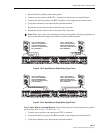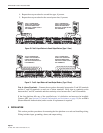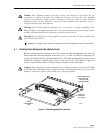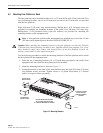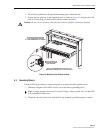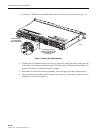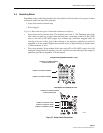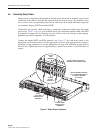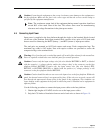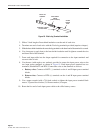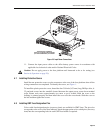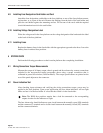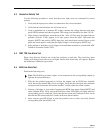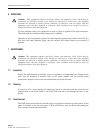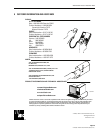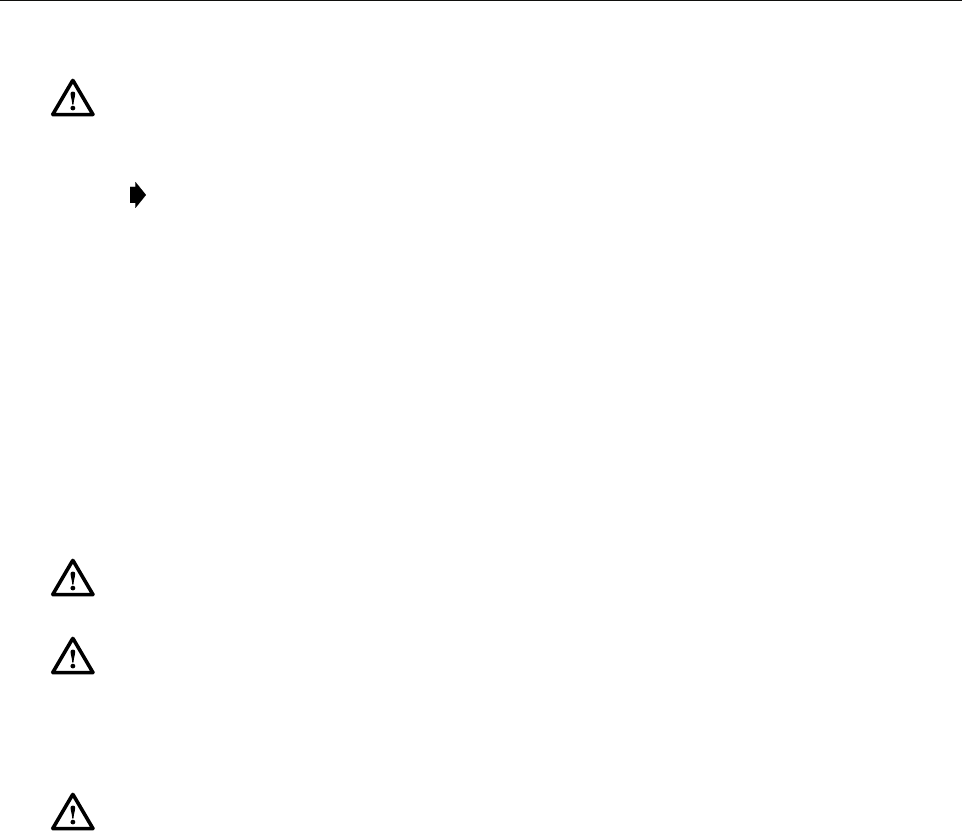
ADCP-80-526 • Issue 6 • December 2006
Page 23
© 2006, ADC Telecommunications, Inc.
4.6 Connecting Input Power
Input power is supplied to the fuse platform through the single or dual terminal blocks located
on the rear of the platform. Each input terminal block consists of two pairs of 0.25-inch studs
that are used for connecting the BATT (battery –) and RTN (return +) input power cables.
The stud pairs are mounted on 0.625 inch centers and accept 2-hole compression lugs. The
maximum lug width is 0.62 inches. Nuts with captive washers are provided to secure the
compression lugs to the terminal block.
Use the following procedure to connect the input power cables to the fuse platform:
1. Obtain eight lengths of #2 AWG wire for use as the input power cables.
2. Strip back 7/8 inches of insulation from one end of each wire as shown in Figure 18.
Caution: Connecting the equipment to the wrong circuit may cause damage to the equipment or
the fuse platform. Make sure the fuse is the correct type and has the correct current rating as
specified by the equipment manufacturer.
Note: The continuous output load of the equipment during normal operation should not
exceed 80% of the rated value of the fuse. This allows some room for manufacturing
tolerances and voltage fluctuations in the plant power mains.
Warning: Use of one bus only on a dual bus panel will result in false alarms for the unused bus.
Power is required on both buses on a dual bus panel for normal operation.
Caution: Connect only the input voltage wire [the wire labeled BATTERY or BATT, or labeled
with the negative (–) voltage polarity and/or the voltage value] to the connector on the fuse
platform labeled BATTERY. Connect only the input return wire [the wire labeled RTN,
RETURN, or BATTERY GROUND, or labeled with the positive (+) voltage polarity] to the
connector on the fuse platform labeled RETURN.
Caution: Caution should be taken to not reverse the input wires to the fuse platform. Within the
panel, the internal return wiring is not protected by fuses. If the wires are reversed, current will
flow through the unprotected return wiring in the panel to the equipment. This condition can
cause damage to the equipment in the frame in which the panel is installed and to equipment in
adjacent frames



